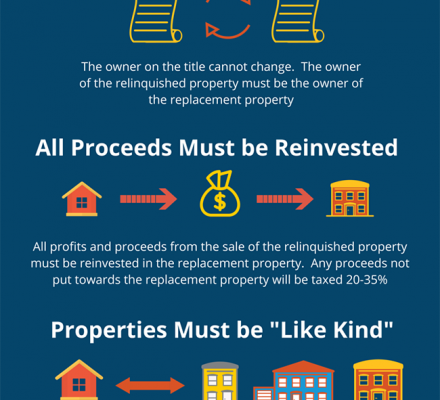Choosing to add real estate investing to your portfolio is a great way to diversify your investments, improve returns, and even protect yourself against any risk of inflation.
That said, deciding how to invest in real estate can be difficult for many people, especially those without experience. There are many options out there to choose from, which can be overwhelming, too.
Two popular real estate investment types include real estate investment trusts (REITs) and rental properties. But why are they popular, and what do they offer? More importantly, which of these options is the better choice for you and your investment ambitions?
Investing in real estate is a smart move, especially when working with a financial advisor to choose the best real estate assets that fit your timeline, goals, and risk profile.
Before deciding which option best suits your investment profile, it is important to understand how these two options work.
Real Estate Investment Trust (REIT)
A real estate investment trust or REIT differs from a rental property in the way it operates. With REIT, an investor buys shares in the trust that operates and owns the actual property.
The investor doesn’t get a say in the type of property held by the REIT and has no responsibility or input in property management.
When the assets held by the REIT appreciate, turning a profit, every investor gets a dividend. If there is a need for an investor to liquidate their REIT shares, they can do that at the market’s current value.
The draw with REITs is they can be privately traded, publicly non-traded, or publicly traded. Every type of REIT does operate in its unique way concerning fund accessibility and investment requirements.
Rental Property
Most people, especially those interested in real estate investing, already have an idea of what a rental property is. An investor can buy and rent out the property as a residence. It could be a multifamily property or even an apartment building.
The ideal theory is that the property will generate more revenue in rent each month than what the investor pays in taxes, insurance, repairs, mortgage, and any other expenses. Such investment provides the investor with a monthly cash flow, and the profit can either be saved or reinvested into the property.
The main goal is for the rental’s value to appreciate, whether through upgrades and renovations or the passage of time. If the investor chooses to sell the property, it would have provided a valid source of long-term financial growth.
Similarities between REIT and Rental Property
Although investing in REITs and rental property are not the same, they are similar in many ways. The following are the few ways that both real estate investment options overlap:
Diversification
Real estate investing can help investors diversify their portfolios, adding a real estate asset and bringing about a better way to secure their savings and combat factors such as inflation and market downturns.
Both REITs and rental properties help diversify a portfolio, which is why many investors add real estate to their portfolios. The more varied an investment portfolio is, the better it can handle any economic changes, especially if things go south.
Volatility
Volatility is another similarity that both rental properties and REITs share. Their values are known to fluctuate over time. For instance, if a REIT expects a lower profit margin resulting from market trends or increased expenses, investors will see lower dividend payments. This lower cash flow can influence an investor’s budget or outside financial efforts.
Volatility with REITs is also an issue if there is a need for an investor to liquidate their portfolio. If the REIT price is lower than the purchase price, investors will likely feel the effects once the investment is sold.
Rental properties are also susceptible to various factors aside from volatility, such as falling property values and bad tenants. Rental income can also fluctuate alongside the general real estate market. When this happens, it results in extended vacancies and lower rent prices. Unexpected major repairs or property taxes, both of which are the responsibility of the investor/owner, also affect volatility.
Capital Appreciation
Both REITs and rental properties are great long-term investments for most investors since they offer asset appreciation and strong growth. If the assets appreciate, then individual investors will enjoy the increased cash flow. Once the assets are sold, the investor can also enjoy the value growth.
Cash Flow
Both rental properties and REITs are investments that offer an investor a source of cash flow. According to the IRS, REITs must distribute a minimum of 90% of their taxable income to their investors through dividends, which is why REITs are a reliable source of passive income streams.
Under the right circumstances, a rental property can also offer monthly cash flow. However, there are a lot of variables such as property taxes, repairs, vacancies, and market rental prices that affect the monthly cash flow.
Differences between REIT and Rental property
There are many differences between REITs and rental properties. And as a prospective investor, you need to be aware of and understand these differences as they can help you make a better-informed decision.
Upfront Investments and Costs
While rental properties are attractive to investors, they are not cheap, particularly when it comes to upfront costs.
To buy a rental property, an investor needs to have enough funds for the down payment, closing costs, and earnest money. If the property requires renovations, the investor will have to take out a loan or provide the cash to fund it.
On the other hand, REITs only require a couple of dollars to get started. And while there are some REITs with high investment minimum requirements (particularly a public non-traded REIT and a private REIT), on the whole, there are many more REITs with no minimum investments. These can be found on brokerage platforms.
Liquidity
If there was ever a need to liquidate the investments, REITs are a lot easier than rental properties. The only option is to sell the rental property. This process can take money, a lot of effort, and time. It involves preparing the property to sell and listing it, showing it, and closing the deal. This process could take several months.
On the flip side, REITs can be liquidated by simply calling a broker or logging into the REIT’s brokerage site and clicking a button. You can also sell publicly traded REITs in minutes, so long as an interested buyer is available.
Active vs Passive Investments
An important difference that rental property and REIT investors should bear in mind when considering these forms of real estate investment is that an investment property is an active investment while REITs are passive.
A rental property requires constant attention and a more hands-on approach to the physical real estate, even if a property management company handles most of the daily decisions.
Conversely, REITs provide investors with a one-and-done approach to real estate investment. After they purchase shares, an investor does not have to do anything else with the real property. They just receive their REIT dividends and watch the value of their assets grow.
Use as Collateral
Investors with rental properties can borrow against a part of their equity when need be. This process is typically carried out through a home equity line of credit or an equity loan.
Flexibility and Control
When investing in a REIT, you don’t get input on the paint colors or the next tenants to move into the property. Rental properties offer a more inclusive and hands-on investment approach.
Tax Breaks for Direct Ownership
Property owners can leverage numerous IRS tax deductions as a result of their investment properties. A few of these include writing off items like property taxes, mortgage interest, management expenses, repairs, and any other expenses. Unlike rental properties, REITs do not have access to these types of deductions.
Conclusion
If, as an investor, you prefer a real estate investment opportunity that has a hands-off approach, you might want to look into REITs. On the other hand, if you prefer a real estate investment opportunity with a hands-on approach and tax benefits, rental property is a smart choice.
For some real estate investors, buying rental properties and purchasing shares can through real estate investment trusts provide a perfect balance. After all, it is important to have a diversified investment portfolio as that can help protect you for the future, regardless of how the markets swing.
That said, there is no right choice. Instead, you have to consider the factors listed in this article and go for what suits your investment style and goals.
As an investor, it is imperative to discern your risk tolerance before building your portfolio and consistently reevaluate it in case it changes later down the line.




